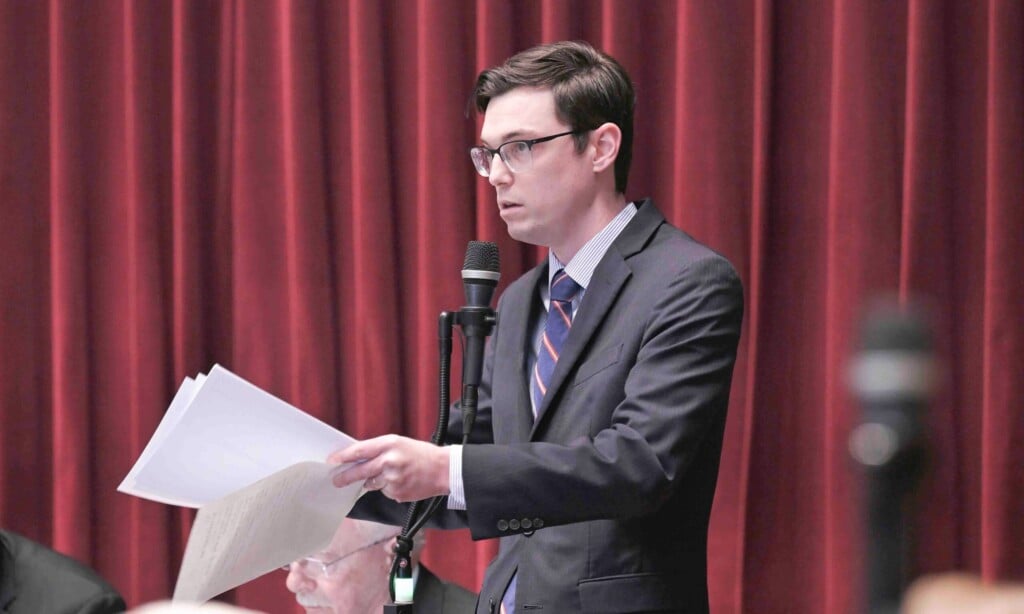Streetside: Kanrocksas hits the self-destruct button


On May 17, the organizers of the Kanrocksas Music Festival announced that a “limited” number of single-day tickets were being made available, for $99. (Two-day tickets had been on sale since March, for $175.) A week and a half later — exactly one month before the event was to be held at the Kansas Speedway — we all learned that there was nothing remotely limited about tickets to Kanrocksas.
“Due to insufficient ticket sales, Midwest Music Festivals and the Kansas Speedway have decided to cancel the 2013 Kanrocksas Music Festival scheduled for June 28th and 29th,” read the press release and a note on the festival’s website.
That Kanrocksas shit the bed is no great shock. But it is embarrassing, and a little unprecedented. Canceling a festival of that size (one that had just wrangled a mention among Entertainment Weekly‘s must-sees on the summer music calendar) is the nuclear option. Millions of dollars and a year’s worth of planning had already gone into Kanrocksas, but the organizers were so certain they were going to lose their asses that they pulled the plug to avoid an even bigger meltdown.
What happened? The simple answer is that nobody was buying tickets. Why nobody was buying tickets requires a bit of unpacking. Let’s have a crack at it.
In case you’re new here, here’s a rough historical outline of Kanrocksas. In 2011, out of nowhere, word arrives that a huge, two-day music festival is coming to the Kansas Speedway. The organizers: Chris Fritz, the longtime concert promoter and self-styled Bill Graham of Kansas City; Bill Brandmeyer, heir to a medical-products-company fortune and owner of two bars (now closed) at the Legends; and Mammoth Inc., the Lawrence booking and promotions company. Eminem headlines. People show up. Still, attendance lands well shy of the organizers’ goals. Much money is lost. In 2012, there is no Kanrocksas.
The word Kanrocksas re-enters the local lexicon in 2013, this time without Fritz. There are whispers that Fritz is to blame for the 2011 debacle, that he’s an old-school concert promoter who hasn’t adjusted to the realities of the 21st-century music business. In January, Kanrocksas unveils three headliners: folk-rock heartthrobs the Avett Brothers, on-the-rise rapper Kendrick Lamar, and EDM superstar DJ Tiesto. (Later, the bill adds MGMT, Fun, Passion Pit, Yeah Yeah Yeahs, Pretty Lights and others.) In an interview with The Kansas City Star, Brandmeyer compares his updated booking strategy with the movie Moneyball: “We felt like we could buy four or five great bands for the price of one.” In other words, no Eminem, whom Kanrocksas is rumored to have paid more than $1 million in 2011.
The 2013 version of Kanrocksas, then, was always meant to be a bit scaled back. The lack of a big-dollar headliner — a Mumford and Sons, a Paul McCartney, a Nine Inch Nails — is visible evidence that Brandmeyer isn’t trying to compete with established festivals such as Lollapalooza, Coachella, Bonnaroo or Outside Lands.
A straight-up second-tier festival is not the worst idea in the world. But if you don’t have big names, you can’t charge big prices. Which is what Kanrocksas was doing.
Compare Kanrocksas 2013 with this year’s sold-out Lollapalooza. Over its stacked three days, Lollapalooza offers the Cure, the Killers, Nine Inch Nails, Mumford and Sons, Lumineers, Phoenix, Postal Service, New Order, the National, Vampire Weekend and hundreds more. Three-day passes went for $235 — just $60 more than Kanrocksas was asking for two days (not counting $25 if you wanted to camp). At $95, Lollapalooza’s one-day passes were actually $4 cheaper than Kanrocksas’ one-day passes. That’s preposterous.
St. Louis’ LouFest has the Killers, Wilco, the National, Alabama Shakes, Edward Sharpe and the Magnetic Zeros, Jim James, Local Natives, Icona Pop, Fitz and the Tantrums, and Toro y Moi. It also has an identity — mostly folk and indie rock, not much in the way of EDM or hip-hop. As a 31-year-old guy who listens to lots of music, I am much more interested in the LouFest lineup than I was in the Kanrocksas lineup. Lucky for me, two-day tickets to LouFest cost just $95. Again, that’s $4 less than one day at Kanrocksas.
Not every potential festivalgoer is like me, of course, and the Kanrocksas lineup was nothing if not diverse. It included, for instance, lots of EDM acts. But fans of that genre tend to be college-age or in their early 20s. The economy isn’t great for those people right now, and a $200 ticket (not counting food and drink and gas and lodging) might as well be the whole summer’s cash.
In its varied bill, Kanrocksas’ schedule looked less like Lollapalooza than it did this year’s 80-35 Music Festival, in Des Moines, which features Wu Tang Clan, David Byrne and St. Vincent, Deerhunter, Umphrey’s McGee, Yeasayer, Wavves, and Menomena. At $39 a day (or $65 for two), though, it’s yet more evidence just how ill-proportioned Kanrocksas’ ticketing was. (The Des Moines event is even more affordable now; if you send over your Kanrocksas ticket purchase confirmation, you get a $10 discount.)
Impractical ticket pricing doomed Kanrocksas 2013, but other, smaller issues had already weakened the fest. The Kansas Speedway is too big, too far away from the city and probably too expensive to rent, given the more modest ambitions of the fest this year. And in addition to having always been stupid, the name “Kanrocksas” was one we’d all learned to associate with failure after 2011. Why not rebrand and rename?
I’ve met Brandmeyer. He’s a friendly guy who’s really enthusiastic about music. He just wants to throw some big parties, and he has the cash to do it. I don’t think he or the other organizers of Kanrocksas were trying to rip anybody off with ticket prices. They just found themselves stuck in a spot where the math wasn’t going to work. Maybe one of these days, Brandmeyer or some other local will crack the code. Until then, meet me in St. Louis.




